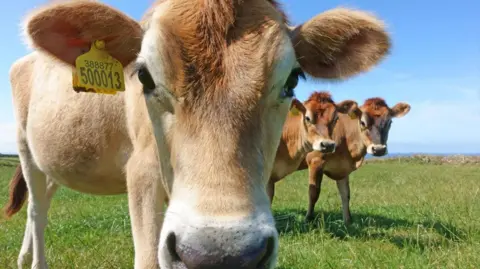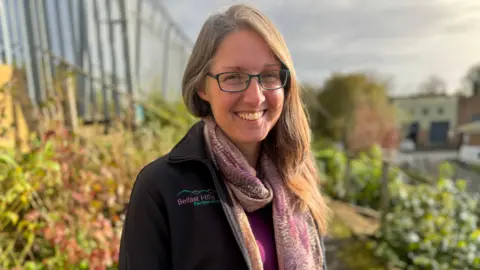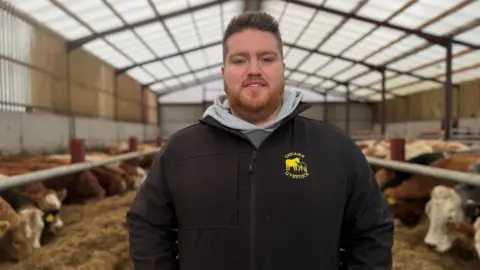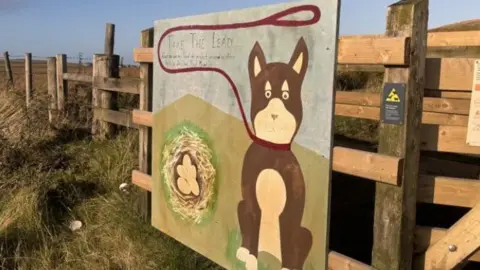Disease spread in dog poo could be 'disaster' for cows
 BBC
BBCA disease spread in dog poo could spell disaster for cattle near walking routes on the Belfast hills, conservationists have warned.
Neospora has been branded a "silent killer" but is easily avoided if dog walkers bag and bin their pets' faeces.
Infection causes miscarriages in pregnant cows and leaves them unable to breed again.
Dr Lizzy Pinkerton from the Belfast Hills Partnership said cattle were "basically the conservation tool" on the hills, where they help manage vegetation to support a healthy biodiversity.
"Not everyone is a responsible dog owner," she said.

"People think when they go up into the hills that it doesn't matter, the dogs can just go anywhere and nature will take care of it," Dr Pinkerton said.
"Unfortunately it carries disease.
"For the farmers trying to make a living off the hills, it is devastating."
Andrew McCammond's 200 suckler cows are among the herds that graze across the Belfast hills.
The cattle help manage vegetation to support a healthy biodiversity.
"They say Divis Mountain and the hills surrounding it are in good environmental condition," said Mr McCammond.
"If it wasn't grazed and managed with cows, there would be a lot more forage and then once in a while, there would be a massive fire which would have a detrimental effect and do away with this beautiful area."

The hills attract thousands of visitors and dog-walkers every year, most of them careful to stick to the publicly accessible areas outlined on maps.
But some are not so careful.
That has brought the disease to the door of landowners like Martin Cunningham who is a fourth generation farmer on Divis.
"It's been very difficult to deal with," he said.
"A loss of an animal is very hard on us both financially and emotionally.
"To see our animals suffer is very hard on us and also the financial implication is very hard to get over at a time when farming's under a lot of pressure."
The hills play an important role in helping to protect the environment, with peatlands throughout them absorbing and storing carbon.
Walking routes are accessible from Slievenacloy to Carnmoney Hill.
'Duty of care'

"We want everyone to be able to make use of the hills, from the local landowners to the people walking and enjoying them," said Dr Pinkerton.
"So just by really carefully looking after your dog, making sure that you know if it's done its business and picking up after it, it's so simple but will make such a big difference."
While picking up the poo probably isn't anyone's favourite job, Mr McCammond said it was a must, to keep farming in the area viable and to protect biodiversity.
"I take a duty of care to make sure everything is good in this shared space," he said.
"The public should take the same."
